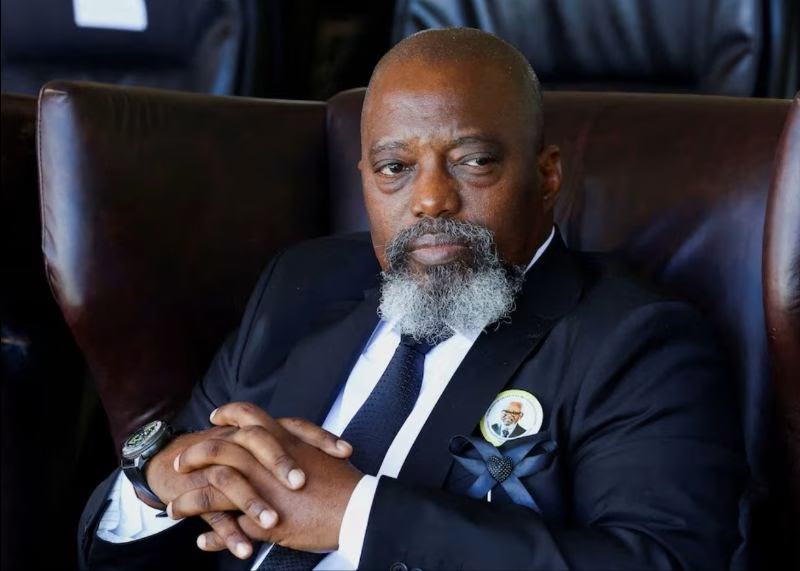Leadership lessons from Africa’s trailblazers
By Mutsa Chironga, Georges Desvaux, and Acha Leke
James Mwangi, CEO of Kenya-based Equity Bank, built the company with one core purpose in mind: to solve the social problem of lack of access to financial services. Equity Bank was born out of Mwangi’s turnaround of a then-small Kenyan building society, which was converted into a commercial bank in 2004. Today, it has more than 12 million clients in six countries across East and Central Africa, as well as nearly $5 billion in assets and reported pre-tax profits of $270 million.
James Mwangi: I grew up in a rural area of Kenya, and my own mother, Grace, didn’t have a bank account. The nearest bank branch was 50 kilometers away, and the minimum opening balance was equivalent to several years of her earnings. My mother would also have been intimidated by banks, with their granite floors, long queues, and formally dressed officials. To make matters worse, banks often had a seven-day rule between withdrawals. If your child got sick, you couldn’t go back and withdraw money from your account if you’d been there the day before. Banks simply didn’t understand the day-to-day financial situations of ordinary people. Kenyans’ response was to keep their money under the mattress.
Fewer than one in ten Kenyan adults had a bank account at the turn of the 21st century. Today, thanks in part to Equity Bank’s innovations, two-thirds of them do. We knew we had to address the needs of people like my mother. We wanted to give banking a human face and create the concept of the bank as a marketplace where people would feel at home. We did away with high minimum balances, created affordable products, and, most importantly, delivered them where people lived. One innovation was to introduce what we called “mobile village banking,” or banking on wheels. Long before cellphone banking came along, we created minibank branches that could fit in the back of a Land Rover and drove them from village to village across rural Kenya.

Maybe our best-known innovation, though, is our agency banking model: Equity Bank has accredited more than 30,000 small retail outlets across the country as bank agents, able to accept deposits, dispense cash, open accounts, apply for payment cards, pay bills like those for power or water, and much more. It took us six years to convince the Central Bank of Kenya that shopkeepers could accept cash as banking agents. But once we did, we were able to multiply our network 1,000-fold. That has really taken banking to the last mile in every village. As a result, banking now competes with sugar and salt as a product. The agency model has assisted in our continued pursuit of demystifying banking. Our agents don’t talk to customers in banking jargon—they use the language of the common man in their environment. We’ve assisted those 40,000 shopkeepers to professionalize: they’ve become owner–managers, managing a bank for a commission. That in turn has distributed wealth across the country.
Our business model is high volume and low margin. Cost-effectiveness and efficiency are key, and technology plays an important role. Today, Equity Bank has moved beyond Land Rovers and enabled true mobile banking via our Equitel mobile-banking application, which we launched in 2015. Equitel uses SIM overlay technology to enable easy access by customers of every mobile provider. Equitel has become very big, very fast. Today, our branches are doing 5,000 transactions a day, our agents are doing 300,000 transactions a day, and Equitel is doing 900,000 transactions a day. As customer preferences for channels of service continue to evolve to self-service devices, the old brick-and-mortar branches are moving to become service and advisory centers. The bank’s cost model is shifting from a fixed-cost to a variable-cost model. This has helped us reduce our cost-to-income ratio to an average of 49 to 50 percent, down from a high of 60 to 70 percent some years previously.
We are already looking ahead at future innovations. We see social media as the next channel for banking, so our next big focus is channel innovation. We are also looking beyond financial services and building a new business in the healthcare space—a network of medical centers called Equity Afia. The inspiration came from our charitable foundation, which has awarded some 6,000 university scholarships through paid internships to academically gifted students from across Kenya’s 47 counties, under the Equity Leaders Program. We looked at our graduates and found that 600 of them had been to medical school. We already knew that 40 percent of the defaults on our bank loans were due to ill health in the family, so we empowered our medical graduates as entrepreneur doctors, helping them start clinics and supporting them with systems to manage their clinics. At the same time, we are providing our banking customers with medical insurance. These products intertwine the commercial interests of the bank and a solution to address the health challenge of our society.
Social impact is embedded in our DNA, and it is what has enabled Equity Bank to scale: today it is the biggest bank, by market capitalization, in East and Central Africa. We see the bank not just as a company but as a movement for socioeconomic transformation. People see themselves as part of that movement. They say, “I joined, I became a member,” not “I opened an account.” That concept of belonging has been central to Equity Bank’s growth.
About the author(s)
The reflections of Nadia Fettah, James Mwangi, Aliko Dangote, Fred Swaniker, and Graça Machel are drawn from interviews conducted as part of a broader research effort underlying a new book, Africa’s Business Revolution: How to Succeed in the World’s Next Big Growth Market (Harvard Business Press, 2018), by Mutsa Chironga, a Nedbank executive and an alumnus of McKinsey’s Johannesburg office; Georges Desvaux, a senior partner in the Hong Kong office; and Acha Leke, chairman of McKinsey’s Africa offices, based in Johannesburg. The authors wish to thank Jalil Bensouda and Omid Kassiri for their contributions to the book and this article.











